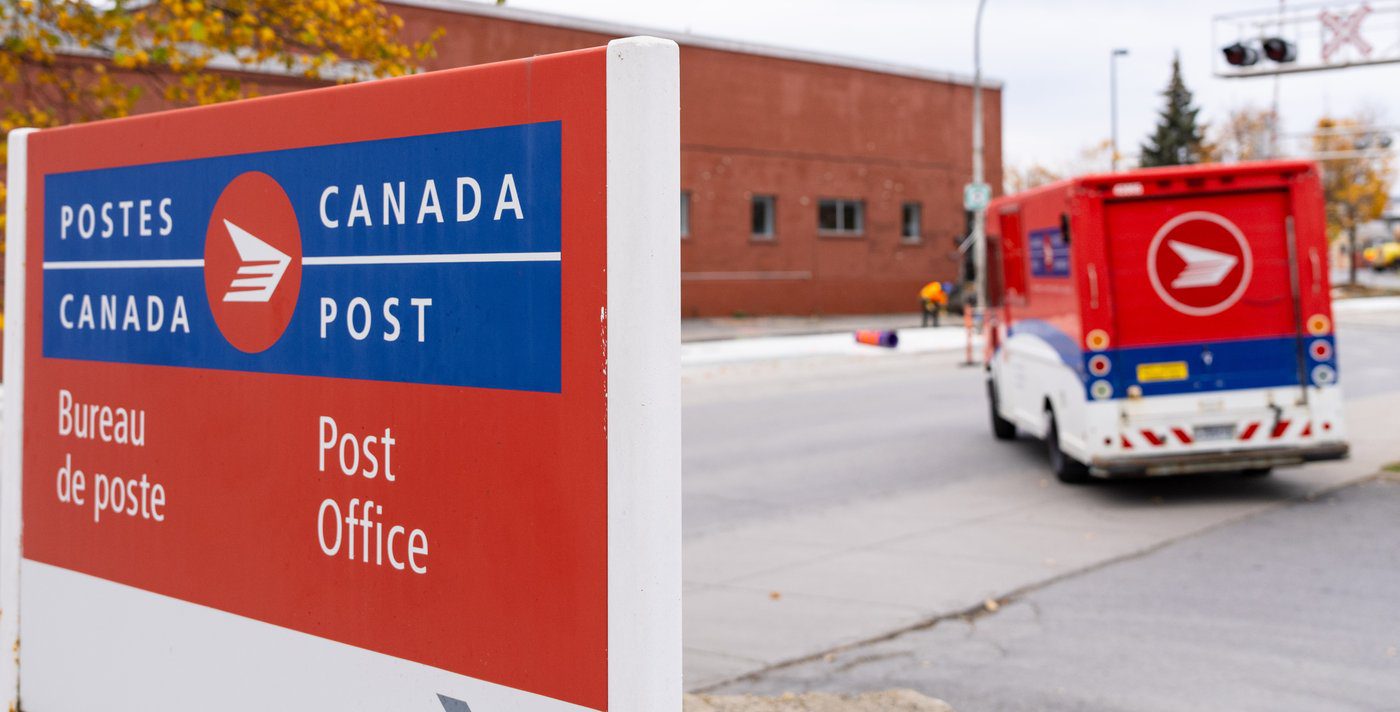OTTAWA — Postal workers across the country could be off the job starting Friday if there’s no breakthrough in contract negotiations with Canada Post — a disruption that would come just ahead of the busy Christmas holiday season.
The Crown corporation issued a lockout notice on Tuesday, after mail carriers handed their employer a 72-hour strike notice.
If negotiated settlements are not reached by the deadline, workers will be in legal strike position Friday morning, according to the Canadian Union of Postal Workers.
But the union said its national executive board has yet to decide if job action will happen, saying that will depend on Canada Post’s actions at the bargaining table in the coming days.
“After almost a year of bargaining, despite our best efforts, the parties remain far apart on many issues,” the union said in statement.
Labour Minister Steven MacKinnon said the federal government is urging both sides to negotiate a settlement ahead of the looming deadline.
“We are hoping to achieve a deal at the table,” he said at a Tuesday news conference. “We will make every effort possible to keep them at the table and keep them talking, and we hope to achieve a negotiated settlement there.”
He made the comments as his government ordered the Canada Industrial Relations Board to step in to end a protracted labour dispute that’s locked up cargo shipments at ports in Vancouver and Montreal.
NDP labour critic Matthew Green said he’s concerned Ottawa could eventually do the same to Canada Post workers, a “weasel way out” of solving labour issues without having to vote on them in Parliament.
“CUPW has been trying to negotiate for a year. I think it’s well within their rights to try to negotiate their wages.”
He also said there is “no scenario” where his party would ever support back-to-work legislation — whether that could cause an election or not.
Legislating an end to a potential postal strike is an unlikely option, since the House of Commons is gridlocked by an ongoing procedural row between the Liberals and Conservatives that has sidelined the government’s legislative agenda.
A rotating postal strike this time of year in 2018 resulted in the Trudeau Liberals passing back-to-work legislation through Parliament to resolve the dispute within a matter of days — a move the NDP voted against.
At that time, the Liberals had a majority government. Now, they face an unstable minority and the wrong move could send the country barrelling toward an early election.
Mark Thompson, professor emeritus at the University of British Columbia’s Sauder School of Business, said it seems unlikely the government will want to intervene, and it’s a “little bit too early to tell” if this could head to the labour board for resolution like the port disputes.
“They haven’t walked away from bargaining and they haven’t made a lot of threats,” he said, adding both sides are only firing off “warning shots” at the moment.
The strike notice covers both the union’s urban bargaining unit and its rural and suburban unit.
Canada Post spokesman John Hamilton said despite the lockout notice, the organization doesn’t intend to lock out its employees.
Instead, he said the notice means that as of Friday, the two collective agreements will no longer be in effect.
“Then we can make changes to our operations to align our delivery and align our operations … and respond to the impact that the strike has had on our business,” he said. “In order to do that, you have to file that notice.”
Canada Post’s latest contract offer included annual wage increases that amounted to 11.5 per cent over four years. It also offered protection of the defined benefit pension for current employees, as well as job security and health benefits.
The union has rejected the proposal. It announced last month its members had voted overwhelmingly to support a strike if a deal could not be reached.
Canada Post said if the union initiates rotating-strike activity, it intends to continue delivering while working to reach negotiated agreements.
“However, the ongoing possibility of a labour disruption has been significantly eroding Canada Post’s volumes and escalating the negative financial impact on the company,” it said in a news release, adding this is normally the busiest time of year.
Thompson said the union knows this season is “when they have the most bargaining power” and said the employer offer seems a little “thin” to him from the workers’ perspective.
Pascal Chan, a senior director at the Canadian Chamber of Commerce, said a work stoppage would have a “considerable impact on millions of Canadians and businesses relying on our postal services.”
“It would add another layer of disruption to supply chains already struggling with the shutdowns of our largest East and West Coast ports,” Chan said.
Canada Post said it’s agreed with the union to continue delivering socio-economic cheques in the event of a strike so that Canadians still receive government financial assistance, although the federal government is encouraging Canadians to sign up for direct deposit in case of a mail service disruption.
Canada Post has been struggling for years amid a shifting parcel-delivery market and the impacts of the COVID-19 pandemic.
At the organization’s annual general meeting in August, it said its financial situation is unsustainable and that significant change is required to preserve its delivery network.
This report by The Canadian Press was first published Nov. 12, 2024.
Kyle Duggan and Rosa Saba, The Canadian Press





